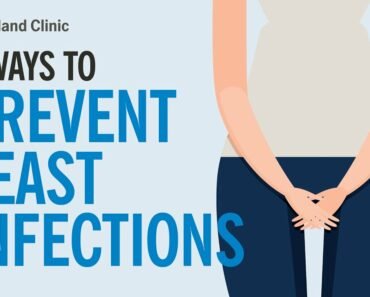Yeast Infection Causes
Yeast infections are a common concern, affecting millions worldwide. They can be uncomfortable, persistent, and sometimes embarrassing. But what exactly causes these infections? Let’s dive into the world of yeast infections, unraveling their mysteries and understanding how to prevent and treat them.
What Causes Yeast Infections?
At the heart of most yeast infections is a fungus named Candida. While Candida naturally resides in our bodies, problems arise when it grows uncontrollably. This imbalance can lead to the symptoms commonly associated with yeast infections.
The Role of Candida
Candida species, particularly Candida albicans, are often the culprits behind yeast infections. These microorganisms thrive in warm, moist environments, making certain body parts ideal for their overgrowth.
Antibiotics and Yeast Infections
Antibiotics, while essential for treating bacterial infections, can sometimes cause yeast infections. They eliminate not only harmful bacteria but also the beneficial ones that keep Candida in check.
Hormonal Changes
Hormonal fluctuations, such as those during pregnancy, menstruation, or due to birth control pills, can increase the risk of yeast infections. These changes can disrupt the natural balance of microorganisms in the body.
Weakened Immune System
Individuals with weakened immune systems are more susceptible to yeast infections. This includes people with HIV/AIDS, undergoing chemotherapy, or taking medications that suppress the immune system.
Uncontrolled Diabetes
High blood sugar levels provide a fertile environment for Candida to grow. Thus, individuals with uncontrolled diabetes may experience recurrent yeast infections.
Poor Hygiene
Poor hygiene practices can contribute to the development of yeast infections. However, it’s a delicate balance, as over-washing or using harsh soaps can also disrupt the natural flora.
Symptoms of Yeast Infections
Recognizing the symptoms is the first step toward treatment. Common signs include itching, redness, and a thick, white discharge.
When to See a Doctor
While many yeast infections can be treated at home, it’s important to consult a healthcare provider if symptoms persist or recur frequently.
Preventing Yeast Infections
Prevention is key. Wearing loose-fitting clothing, avoiding scented hygiene products, and making dietary changes can help reduce the risk.
Lifestyle Changes
Simple lifestyle adjustments, such as choosing breathable fabrics and maintaining good hygiene, can make a significant difference.
Dietary Considerations
Some evidence suggests that reducing sugar intake and incorporating probiotics can help prevent yeast infections.
Treatment Options
A range of treatments is available, from over-the-counter creams to prescription medications. For those preferring natural remedies, options like yogurt applications and tea tree oil have been explored.
Over-the-Counter Medications
Antifungal creams and suppositories are effective for many individuals, offering relief from symptoms within a few days.
Prescription Medications
In cases of severe or recurrent infections, prescription antifungal medications may be necessary.
Home Remedies
While some home remedies can provide relief, it’s important to approach them with caution and consult a healthcare provider.
Conclusion
Understanding the causes and symptoms of yeast infections is crucial for prevention and treatment. By making informed lifestyle and dietary choices, individuals can reduce their risk and manage symptoms effectively.
FAQs
- Can men get yeast infections?
- Yes, men can also get yeast infections, though they are less common.
- Are yeast infections sexually transmitted?
- While yeast infections are not considered sexually transmitted infections, they can be spread through sexual contact.
- Can a yeast infection go away on its own?
- Some mild yeast infections may resolve without treatment, but it’s always best to consult a healthcare provider for advice.
- How long do yeast infections last?
- With proper treatment, most yeast infections clear up within a week. Without treatment, they may persist or worsen.
- Can diet really affect yeast infections?
- Yes, diet plays a role in the body’s microbial balance, and changes can impact the likelihood of developing yeast infections.


